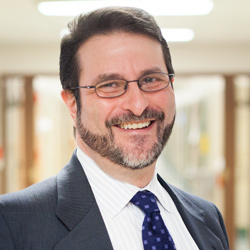Faculty DirectoryAaron I. Packman

Professor of Civil and Environmental Engineering and (by courtesy) Mechanical Engineering and Chemical and Biological Engineering
Contact
2145 Sheridan RoadTech A314
Evanston, IL 60208-3109
847-491-9902Email Aaron Packman
Departments
Civil and Environmental Engineering
Chemical and Biological Engineering
Education
Ph.D. Environmental Engineering and Science, with minor in Geology, California Institute of Technology, Pasadena, CA
M.S. Environmental Engineering and Science, California Institute of Technology, Pasadena, CA
B.S. Mechanical Engineering, with minor in History, cum laude, Washington University, St. Louis, MO
Research Interests
My research focuses on water, sediments, and microorganisms, particularly the intersection of physical transport processes with biological and biogeochemical processes. I seek to understand the role of environmental interfaces in water system dynamics, including the surface-groundwater interface, fluid-particle interactions, and surface-attached microbial communities (biofilms). My work is highly collaborative and encompasses fluid mechanics, particle transport and morphodynamics, aquatic chemistry, microbiology, and public health. Important applications include water resources sustainability, urban flooding, nutrient and carbon cycling, contaminant transport, ecosystem degradation and restoration, waterborne disease transmission, and wastewater-based epidemiology.
Significant Recognition
- Fulbright Distinguished Chair Award (2013)
- Cole-Higgins Award for Excellence in Advising, Northwestern University (2012)
- Huber Research Prize, American Society of Civil Engineers (2008)
- Career Award, National Institutes of Health (NIAID K25) (2006)
- McCormick Faculty Excellence Award, Northwestern University (2006)
- Searle Junior Teaching Fellow, Northwestern University (2001-2002)
- Career Award, National Science Foundation (1999)
- Department of Defense Graduate Fellowship (1991-1994)
- Myers Fellowship (full scholarship), Washington University (1987-1991)
Significant Professional Service
- Limnology and Oceanography – Fluids and Environments, Associate Editor, 2010–Present
- Water Resources Research, Associate Editor, 1999–2009)
- International Journal of Sediment Research, Editorial Board (2003–Present)
- Consortium of Universities for the Advancement of Hydrologic Science, Board of Directors, 2009–Present
- International Association for Sediment Water Science, Board of Directors, 2005–Present, Vice President (2011 – present)
- ASCE, Task Committee on Pathogens in Wet Weather Flows, 2008–Present
- NSF Hydrologic Synthesis Summer Institute, Director, June-August 2010
Selected Publications
- Shapiro, Emma F.; Lin, Zhi Wei; Cifuentes, Edwin Saavedra; Barajas-Rodriguez, Francisco J.; Gwinn, Rosa; Dichtel, William R.; Packman, Aaron I., Removal of PFAS and pharmaceuticals from municipal wastewater using a novel β-cyclodextrin adsorbent over distinct contact times, Water Research (2025).
- O’Brien, Colleen M.; Mossman, Malcolm; Chamberlain, Lucas; Jenkins, Jennifer; Watson, John; Wilson, Ryan; Williams-Clark, Drew; Singer, Alec; Riggio, Kara; Gallet, Danielle; Miller, William M; Packman, Aaron I., Community-centered instrumentation and monitoring of nature-based solutions for urban stormwater control, Frontiers in Water (2024).
- Leisman, Katelyn Plaisier; Owen, Christopher; Warns, Maria M.; Tiwari, Anuj; Bian, George (Zhixin); Owens, Sarah M.; Catlett, Charlie; Shrestha, Abhilasha; Poretsky, Rachel; Packman, Aaron I.; Mangan, Niall M., A modeling pipeline to relate municipal wastewater surveillance and regional public health data, Water Research (2024).
- Faherty, Emily A.G.; Yuce, Deniz; Korban, Colin; Bemis, Kelley; Kowalski, Rishi; Gretsch, Stephanie; Ramirez, Enrique; Poretsky, Rachel; Packman, Aaron; Leisman, Katelyn Plaisier; Pierce, Melissa; Kittner, Alyse; Teran, Richard; Pacilli, Massimo, Correlation of wastewater surveillance data with traditional influenza surveillance measures in Cook County, Illinois, October 2022–April 2023, Science of the Total Environment (2024).
- Khamis, Kieran; Ouellet, Valerie; Croghan, Danny; Hernandez Gonzalez, Liliana M.; Packman, Aaron I.; Hannah, David M.; Krause, Stefan, The Autobot-WQ, Frontiers in Built Environment (2023).
- Lin, Zhi Wei; Shapiro, Emma F.; Barajas-Rodriguez, Francisco J.; Gaisin, Arsen; Ateia, Mohamed; Currie, John; Helbling, Damian E.; Gwinn, Rosa; Packman, Aaron I.; Dichtel, William R., Trace Organic Contaminant Removal from Municipal Wastewater by Styrenic β-Cyclodextrin Polymers, Environmental Science and Technology (2023).
- Saavedra Cifuentes, Edwin; Teitelbaum, Yoni; Arnon, Shai; Dallmann, Jonathan; Phillips, Colin B.; Packman, Aaron I., Turbulence-Driven Clogging of Hyporheic Zones by Fine Particle Filtration, Geophysical Research Letters (2023).
- Shimony, T.; Teitelbaum, Y.; Cifuentes, E. Saavedra; Dallmann, J.; Phillips, C. B.; Packman, A. I.; Arnon, S., Kaolinite Deposition Dynamics and Streambed Clogging During Bedform Migration Under Losing and Gaining Flow Conditions, Water Resources Research (2023).
Patents
- Patent application, "UV Disinfectant Device for Biofilm Flow Cell,” Packman, A.I., Zhang, W., and Sileika, T., submitted September 27, 2010
In the Classroom
My core teaching philosophy encompasses two main elements:
Technical skills should always be developed in the context of important problems and systems. This not only provides a framework for integrating skills and experiences, thereby improving learning and retention of the primary material, but also provides a strong motivation for learning, contributes to development of problem-solving capability beyond the primary material, and fosters a broad technical background and familiarity with current societal issues.
Every aspect of every course should be a learning opportunity. Transmitting factual information and analytical methodology is straightforward, but broader skills are often de-emphasized in conventional courses. I use assignments such as laboratory exercises, student-led discussions, group projects, and case studies to supplement conventional assessment tools such as examinations and homework assignments.
- CIV ENG 260 Fundamentals of Environmental Engineering
- CIV ENG 440 Environmental Transport Processes
- CIV ENG 448 Biophysicochemical Processes in Environmental Systems
- CIV ENG 516 Seminar in Environmental Engineering